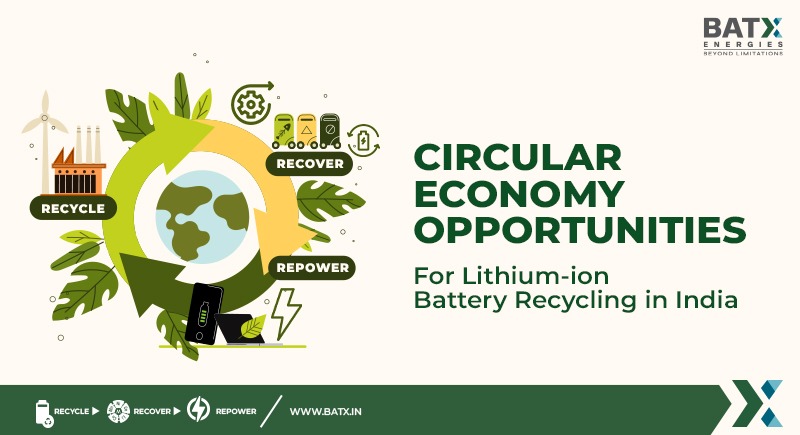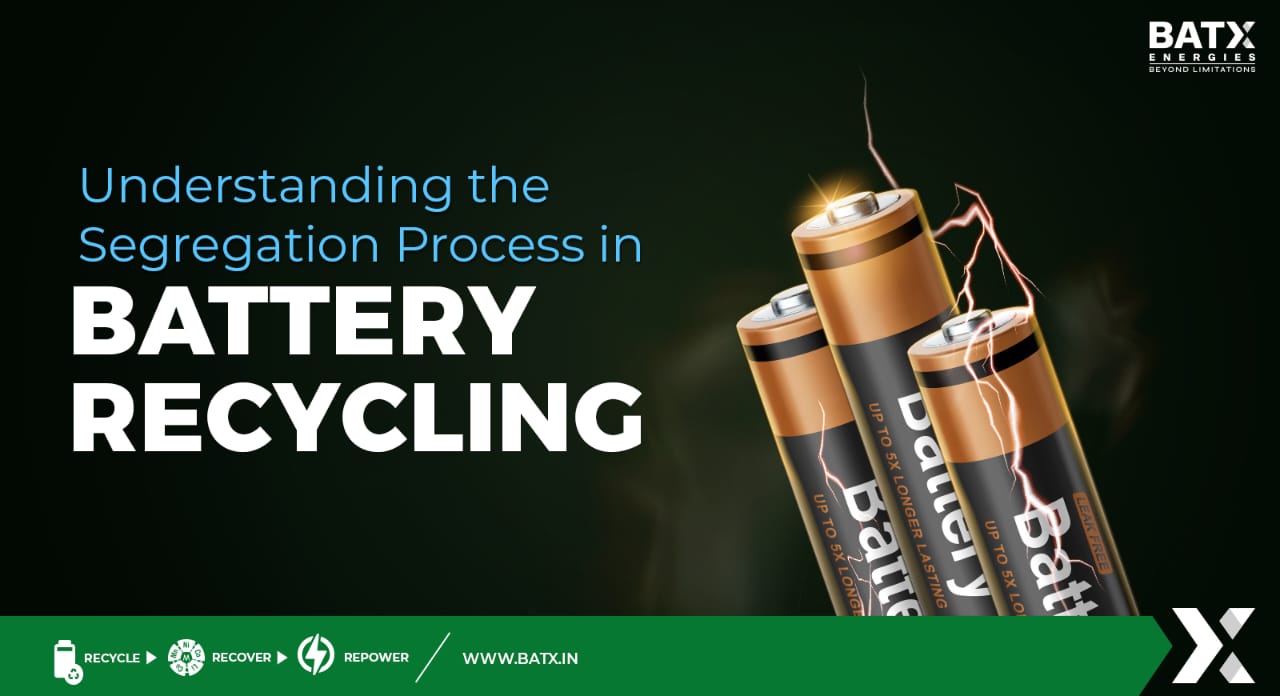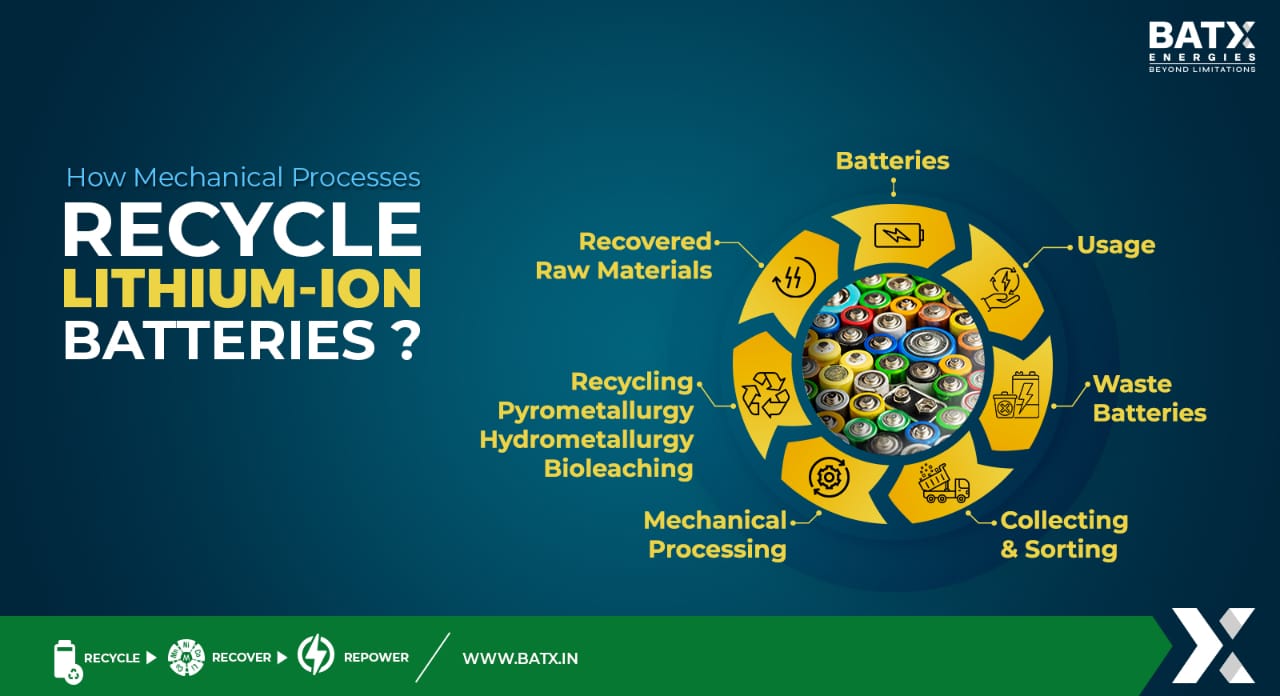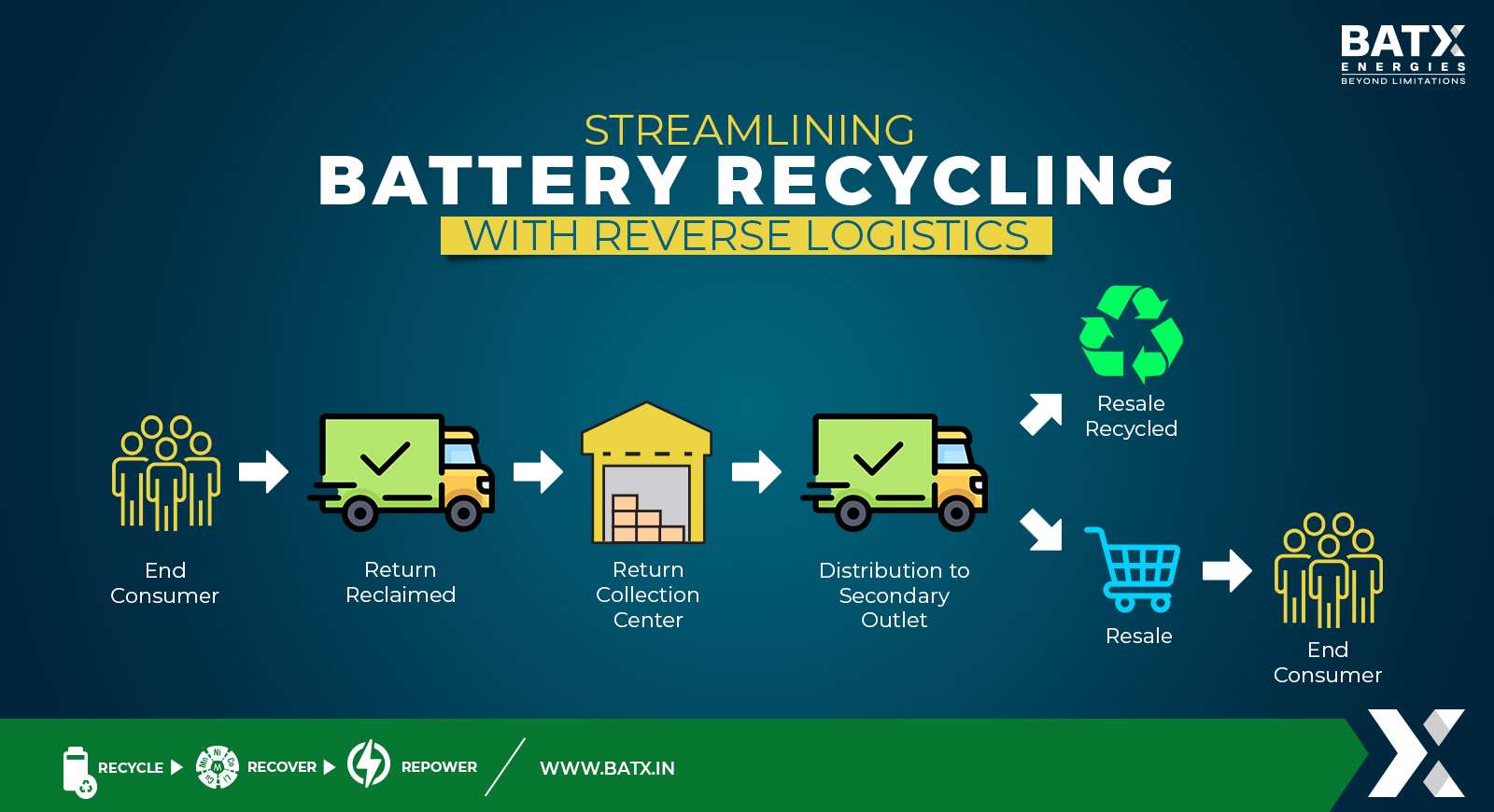As EVs and renewable energy storage systems gain popularity, the global demand for lithium-ion batteries has surged. To address the growing need for sustainable management of battery disposal, India, as a rapidly developing country, has a unique chance to adopt a circular economy model for lithium-ion battery recycling. By establishing effective recycling processes and infrastructure, India can not only address environmental concerns but also capitalize on the economic opportunities presented by this emerging sector.
In this blog, we are going to discuss the circular economy opportunities for lithium-ion battery recycling in India.
|
Table of contents The Need for Lithium-ion Battery Recycling in India Benefits of Lithium-ion Battery Recycling in India
|
The Need for Lithium-ion Battery Recycling in India
Lithium-ion batteries, integral to clean energy and portable devices, possess valuable yet potentially hazardous materials. Improper disposal risks environmental contamination, leaching toxic substances into soil and water. Furthermore, extracting raw materials for new batteries contributes to resource depletion and ecological harm. Hence, Lithium-ion battery recycling in India offers a smart solution that tackles environmental concerns and resource scarcity simultaneously.
Benefits of Lithium-ion Battery Recycling in India
Lithium-ion battery recycling provides numerous benefits beyond environmental preservation. It facilitates the recovery of valuable materials, minimizing the necessity for resource extraction and mitigating mining-related environmental consequences. Recycling fosters a sustainable supply chain for battery production, reducing reliance on imports. Furthermore, the recycling industry stimulates job creation and contributes to overall economic growth. Let’s look further in more detail.
Resource Conservation
Recycling lithium-ion batteries allows for the recovery and reuse of valuable materials like lithium, cobalt, nickel, and other rare metals. This reduces the need for extracting new raw materials, conserving natural resources, and minimizing environmental impacts associated with mining.
The recycling of batteries can be conducted through different processes involving key technologies, such as mechanical recycling, pyrometallurgy, and hydrometallurgy. The use of these technologies in addition to the pre-treatment of batteries allows for a higher recovery rate of metals in the battery
Waste Reduction
Recycling batteries prevents them from ending up in landfills or being improperly disposed of, which can lead to hazardous materials leaching into the environment. By diverting batteries from the waste stream, recycling helps reduce pollution and potential health risks.
Economic Opportunities
Building a robust battery recycling industry in India creates new economic opportunities. It generates jobs in collection, sorting, dismantling, and recycling facilities. Additionally, it promotes the development of advanced recycling technologies, contributing to the growth of a green economy.
Environmental Protection
Properly recycling lithium-ion batteries reduces the release of harmful substances into the environment, such as heavy metals and toxic chemicals. This helps safeguard ecosystems, air quality, and water resources, supporting overall environmental protection efforts.
Energy Efficiency
Recycling batteries reduce the energy and carbon footprint associated with manufacturing new batteries. It requires less energy to extract and process recycled materials compared to obtaining raw materials, resulting in energy savings and reduced greenhouse gas emissions.
Unlocking Circular Economy Opportunities for Lithium-ion Battery Recycling in India
A circular economy offers a compelling solution for minimizing waste, maximizing resource efficiency, and prolonging the lifespan of products. By applying this approach to the field of lithium-ion batteries, India has the potential to significantly reduce its environmental impact while simultaneously capitalizing on economic opportunities associated with the recycling and reutilization of these batteries.
Establishing a Robust Recycling Infrastructure
India has made headway in establishing lithium-ion battery recycling facilities, but additional investment is necessary to boost capacity, enhance collection systems, and encourage the use of advanced recycling technologies. Public-private partnerships are vital for constructing a strong recycling infrastructure.
Research and Development
Investing in research and development (R&D) of cutting-edge recycling technologies can significantly enhance the efficiency and effectiveness of lithium-ion battery recycling. Collaborations among academia, industry, and government bodies are instrumental in driving advancements in recycling processes and fostering the innovation of new materials and technologies.
Extended Producer Responsibility (EPR)
Implementing Extended Producer Responsibility (EPR) regulations ensures battery manufacturers and importers take full responsibility for their product’s lifecycle. EPR frameworks incentivize eco-design, boost recycling, and promote sustainable practices across the supply chain.
Public Awareness and Education
Raising public awareness about the significance of battery recycling and the environmental consequences of improper disposal is vital. Educational campaigns, public outreach programs, and partnerships with educational institutions play a key role in disseminating information and cultivating a culture of responsible battery management.
Conclusion
With growing recognition of the urgency for sustainable practices, India is witnessing a surge in momentum for lithium-ion battery recycling. Backed by government policies, collaborative partnerships, and collective stakeholder efforts, India is poised to establish a strong recycling infrastructure, facilitating a seamless transition towards a circular economy. By embracing responsible battery management, India can effectively reduce waste, preserve valuable resources, and pave the way for a greener, more sustainable future.



